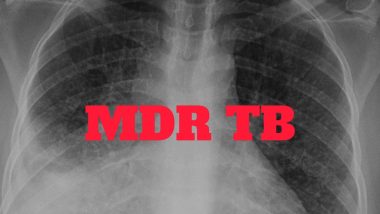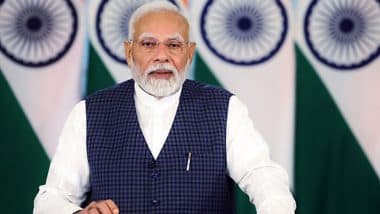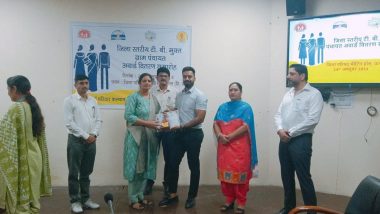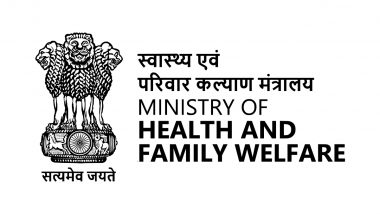Multi-Drug Resistant Tuberculosis, MDR-TB has now become a major public health concern which the health authorities are struggling to cope with. Tuberculosis is one of the biggest communicable disease troubling the authorities in India today. World Tuberculosis Day (March 24) is designed to create public awareness about the global epidemic of tuberculosis (TB) and efforts to eliminate the disease. This year's theme, “Wanted: Leaders for a TB-free World” focuses on building commitment to end TB.
The bacterium that causes tuberculosis (TB), Mycobacterium tuberculosis, can develop resistance to the antimicrobial drugs used to cure the disease. Multidrug-resistant TB (MDR-TB) is a TB that does not respond to even the most powerful of anti-TB drugs. Drug-resistant TB has existed in India since anti-TB drugs were introduced into the country.
A study by ICMR (Indian Council of medical research) states that globally, about three per cent of all newly-diagnosed patients have MDR-TB. It is reported to have reached epidemic proportions in the Russian prisons a few years ago and had become a global concern. The proportion is higher in patients who previously received anti-tuberculosis treatment, reflecting the failure of programmes designed to ensure a complete cure for patients with tuberculosis. While a host of genetic factors may probably contribute, incomplete and inadequate treatment is the most important factor leading to the development of MDR-TB.
If we look at the Karnataka statistics, there has been an increase in the number of cases of Multi-Drug Resistant Tuberculosis (MDR-TB). From 33 cases detected in 2011, the number has gone up to 1,071 cases in 2016, indicating an increase in resistance to tuberculosis (TB) drugs among patients. In the developing countries, it is becoming increasingly difficult to treat MDR-TB. Treatment options are limited, and expensive, recommended medicines are not always available, and patients experience many adverse reactions from the drugs. In 2017, Karnataka identified 68,000 active TB cases during a door-to-door survey of suspected patients. TB patients should seek only prescribed medicines based on their body weight after required tests are done. The treatment protocol is flouted by alternative therapists and quacks, who put patients at risk.
According to NCBI India had the second largest number of estimated MDR-TB cases. It also states that despite achievements in the healthcare sector in India, its efforts to control TB and MDR TB have not been adequate and it remains a challenge. The reason being unorganised public healthcare system in India that leads to a few laboratories, slow diagnostic tools, insufficient supplies of second-line of drugs, inefficient and shortage of trained personnel and unorganised treatment.
Also, data from the RNTCP Revised National TB Control Program (RNTCP) from 2007 to 2010 indicate that the majority of MDR TB cases were undiagnosed in India, which is a major cause of concern for the country. A total of 93,000 people with MDR TB were diagnosed and had been given treatment for drug-resistant TB by 2015. The program that aims to achieve universal access to quality diagnosis and treatment for Tuberculosis in India.
With a huge population of TB patients remaining undiagnosed, they also lack the proper treatment for the disease and it thus remains uncured, giving way to severe complications. The reason for MDR-TB also include a lack of supervision on drug regimen and ineffective and poor-quality drugs.
With MDR-TB becoming a threat to the whole population and a major health concern, it draws all the attention and the need to come up with a solution. The first and foremost is to ensure early diagnosis, followed by regular intake of medicines prescribed by the healthcare provider. MDR TB can be prevented by quickly diagnosing cases of drug resistance based on which healthcare providers can recommend treatment guidelines, and monitor patients’ response to treatment regularly. At the same time, ensuring that the therapy is completed.
This article has been contributed by Dr Vivek Anand Padegal, Director, Pulmonology Fortis Hospital, Bannerghatta Road
(The above story first appeared on LatestLY on Mar 24, 2018 04:00 PM IST. For more news and updates on politics, world, sports, entertainment and lifestyle, log on to our website latestly.com).













 Quickly
Quickly




















